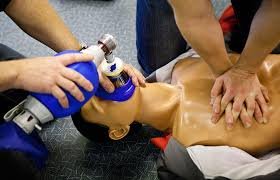How to Support a Child with PANS or PANDAS

When a child suddenly starts exhibiting extreme behavioral changes, obsessive thoughts, or severe anxiety, it can be alarming and confusing for parents. This is especially true when these symptoms appear overnight and worsen rapidly. Such cases may be linked to conditions known as PANS (Pediatric Acute-onset Neuropsychiatric Syndrome) and PANDAS (Pediatric Autoimmune Neuropsychiatric Disorders Associated with Streptococcal infections) — both of which can severely impact a child’s mental, emotional, and physical wellbeing.
For families navigating these complex disorders, finding the right support system is crucial. Multidisciplinary and holistic approaches, like those offered by Level Up Wellness Group, play a key role in managing symptoms and improving a child’s quality of life.
What Are PANS and PANDAS?
PANS and PANDAS are autoimmune conditions that affect children and are often misdiagnosed due to their sudden onset and broad symptoms. They are defined by acute neuropsychiatric symptoms such as:
- Sudden onset of Obsessive-Compulsive Disorder (OCD)
- Tics or abnormal movements
- Extreme separation anxiety or panic attacks
- Behavioral regression (acting much younger than their age)
- Irritability, mood swings, or aggression
- Decline in academic skills or focus
- Sleep disturbances and food restriction
While PANDAS is specifically triggered by Group A Streptococcal infections, PANS may be initiated by other infections, metabolic disturbances, or even environmental triggers.
See also: Cytion’s Role in Supporting Reproducible Science Through Certified Cell Cultures
Why Early Detection Matters
Catching PANS or PANDAS early is vital. The sooner a child is diagnosed, the better the outcome for long-term recovery. Unfortunately, due to lack of awareness, many children are misdiagnosed with generalized anxiety, Tourette’s syndrome, or ADHD — leading to treatments that don’t address the root cause.
Pediatricians, neurologists, psychiatrists, and therapists all need to be involved in a proper diagnosis and treatment plan. This is where a multidisciplinary wellness model becomes essential.
The Role of Holistic and Multidisciplinary Treatment
Unlike traditional healthcare models that may address only isolated symptoms, holistic care focuses on the whole child — mind, body, and environment. A multidisciplinary team typically includes:
- Pediatricians and family doctors
- Psychiatrists and psychologists
- Occupational and speech therapists
- Functional medicine doctors
- Nutritionists
- Social workers and family counselors
This combination of professionals helps manage the wide-ranging symptoms of PANS and PANDAS, from OCD and anxiety to immune system regulation and gut health.
Benefits of a Holistic Approach
- Personalized Treatment Plans
No two children with PANS/PANDAS are the same. A holistic team creates tailored treatment plans based on each child’s triggers, symptoms, and lifestyle. - Nutritional and Immune Support
Many holistic practitioners focus on reducing inflammation, healing the gut, and supporting the immune system — key factors in PANS/PANDAS management. - Mental Health Integration
Psychological therapy is essential for treating the trauma and anxiety that often accompany PANS/PANDAS. Techniques like Cognitive Behavioral Therapy (CBT) and Exposure and Response Prevention (ERP) can be highly effective. - Parental Education and Support
Empowering families with knowledge about these disorders reduces confusion, frustration, and feelings of helplessness.
Common Misconceptions About PANS and PANDAS
Despite increasing awareness, several myths continue to surround these conditions:
- Myth 1: It’s just bad behavior
In reality, the symptoms are neurological and involuntary. - Myth 2: Kids will outgrow it
Without proper treatment, symptoms can persist and worsen over time. - Myth 3: It only happens after strep throat
While PANDAS is strep-related, PANS can result from other infections or triggers. - Myth 4: Antibiotics fix everything
While antibiotics may be part of the treatment, they are not a standalone solution. Ongoing support, therapy, and sometimes immune-modulating treatments are also necessary.
What Should Parents Do?
If your child has had a sudden change in behavior — especially following an illness — consider these steps:
- Document the Symptoms
Track what changed, when it started, and any preceding illnesses or stressful events. - Find a Knowledgeable Provider
Work with professionals who understand the complexity of PANS/PANDAS. Multidisciplinary wellness centers are often more familiar with these conditions than traditional single-specialty clinics. - Get Blood Tests and Lab Work
These may reveal markers of inflammation, infection, or autoimmune responses. - Start Therapeutic Support Early
Even before a formal diagnosis, early therapy can help children develop coping mechanisms and emotional regulation strategies.
Why Multidisciplinary Therapy Is So Effective
Multidisciplinary care is not just about having many professionals — it’s about collaboration and whole-person healing. It ensures:
- Faster and more accurate diagnoses
- Integrated mental and physical treatment
- Reduced parental stress due to coordinated care
- Better long-term outcomes for children
Centers that offer this model — such as Level Up Wellness Group — are making a real difference in how families approach these complex disorders.
Supporting the Family Unit
Parents often suffer silently while trying to care for a child with PANS/PANDAS. Feelings of guilt, burnout, and helplessness are common. Therefore, support for caregivers and siblings should also be part of the treatment plan.
Family therapy, parental coaching, and connecting with other families in similar situations can ease the emotional toll and help parents remain effective advocates for their child.
Final Thoughts: Hope and Healing Are Possible
PANS and PANDAS can feel overwhelming, but they are treatable. With the right diagnosis and a personalized, holistic care plan, children can and do recover. Early intervention, education, and a collaborative care approach are the keys to healing.
If your child is showing signs of PANS or PANDAS, don’t delay in seeking expert help. A multidisciplinary clinic like Level Up Wellness Group can provide the support your child — and your family — truly needs for a brighter, healthier future.




